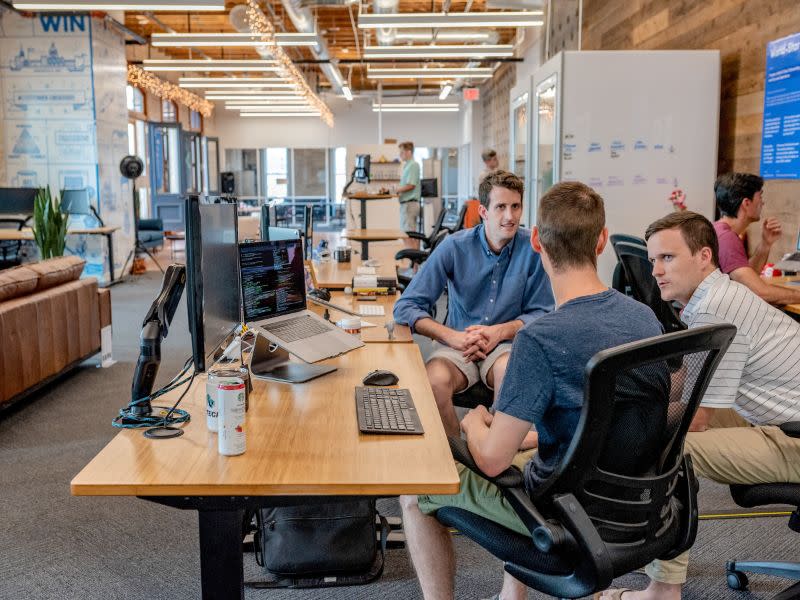Resources
Newsletter
Stay up to date and with the latest news, projects, deals and features.
Subscribe
The global pandemic has proven a crucible for companies, testing both their resilience and agility. They’ve had to adapt to new ways of working.
Old Inefficiencies—long daily commutes, expensive offices, countless unoccupied desks—have been reduced.
Few companies are likely to want to return to their pre-pandemic model now.
Hybrid working allows employees to divide their working hours between a local flexible office space, the company’s headquarters and working from home.
Research shows 90% of employees say they want flexibility on when and where they work.
Our own research demonstrates that three times as many FTSE 250 companies would prefer to adopt a hybrid office model than return to their previous methodologies.
They’re seeking everything from meeting rooms, shared workspaces, break-out areas to virtual offices and other working facilities.

Hybrid solutions can facilitate real savings and ensure economic stability for corporate clients.
They benefit landlords too. In an uncertain economic landscape, workplace hybridisation provides opportunities for stable and sustainable growth.
Indeed, sales of IWG on-demand membership have increased by 93 per cent year-on-year, with projected growth of 10 per cent a year and upwards of 20 per cent ROI.
Businesses can now offer employees an attractive flexible workspace within their local shopping centre, travel hubs or moments from their favourite social spots.
This supports a far better work-life balance than a daily commute to a city centre.
Commercial landlords have an opportunity to play a crucial role in the transition to a new, better way of working.
“In the near future, we believe that there will be a professional workspace available everywhere—from the largest city to the smallest village,” IWG founder and chief executive Mark Dixon said.
“This transformation will unlock unprecedented value for workers, businesses and local economies, while providing an important contribution to improving the environment.
“With people working locally, local amenities and retail outlets will receive a boost and new jobs will be created to service a national network of workspaces.”

As the world’s largest provider of flexible workspaces, IWG is looking for partners with properties in towns, cities and suburbs across the country.
Whether you have a whole building or a single floor, IWG is interested in partnering to capitalise on this surge in demand for flexible workspaces.
Find out how to become a partner today.
The Urban Developer is proud to partner with IWG to deliver this article to you. In doing so, we can continue to publish our daily news, information, insights and opinion to you, our valued readers.